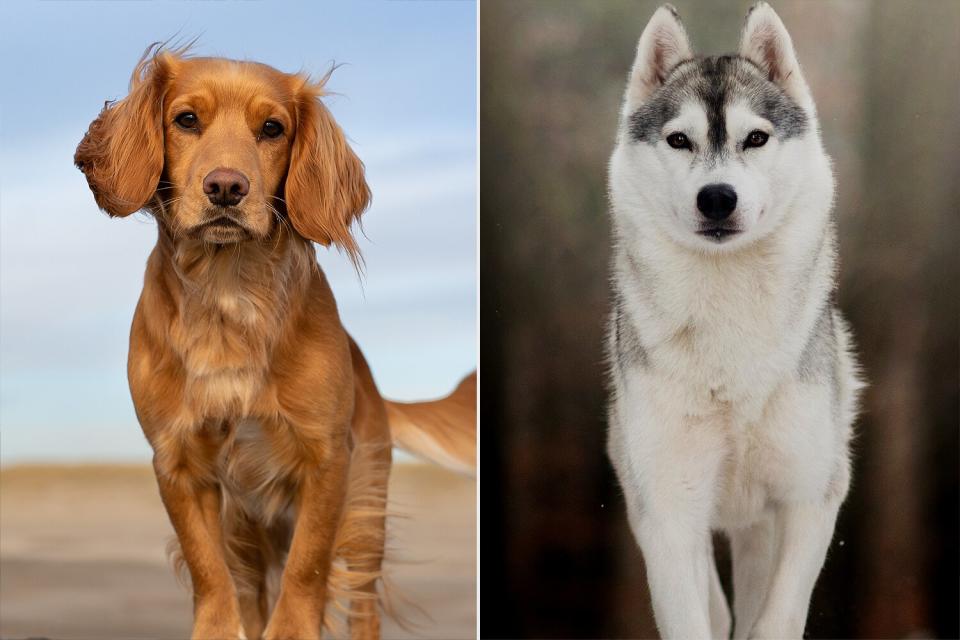Dogs Descended from Two Populations of Ancient Grey Wolves, Study Finds

Getty (2)
Scientists have found that our canine companions are descendants of two different populations of wolves.
In a new study published by the journal Nature, researchers determined that although the ancestry of some early dogs appeared to be descended solely from Asia, others possessed genetic contributions from a population of western grey wolves, which is present in all modern dogs.
"The largest amount of this second source of ancestry is found in an ancient dog that is 7,000 years old, from Israel," said Dr. Anders Bergström, an author of the study from the Francis Crick Institute, according to The Guardian.
RELATED: The World's Cutest Rescue Dog Contest Is Searching for its Next Adorable Canine Star
Bergström added that the DNA from the western grey wolves is most commonly found in dogs from the Middle East and Africa, such as the Basenji breed. Overall, the study found that dogs have the most genetic relation to ancient Siberian wolves, but they are not direct ancestors.
"We still can't tell whether there were two independent domestication events followed by merging of those two populations, or if there was just a single domestication process, followed by mixing from wild wolves," Bergström said, adding: "The search continues to narrow down exactly where dogs come from."
The study analyzed 72 genomes from ancient wolves that lived up to 100,000 years ago in Europe, Siberia, and North America, which researchers compared to those of early and modern dogs. Of the 72 genomes, 66 were tested for the first time.
RELATED VIDEO: Animal Activists Rescue Hundreds of Dogs From Meat Festival in China
Bergström's findings offer deeper insight into the evolution of modern domestic dogs from the grey wolf, but details on how the process of domestication occurred remain a mystery.
"This is the first time scientists have directly tracked natural selection in a large animal over a time-scale of 100,000 years, seeing evolution play out in real-time rather than trying to reconstruct it from DNA today," said senior author Pontus Skoglund in a statement.
The team behind the study plans to test more genomes to help determine an ancient wolf ancestor closer to dogs and to get a more detailed look at where domestication took place.

 Yahoo Finance
Yahoo Finance 